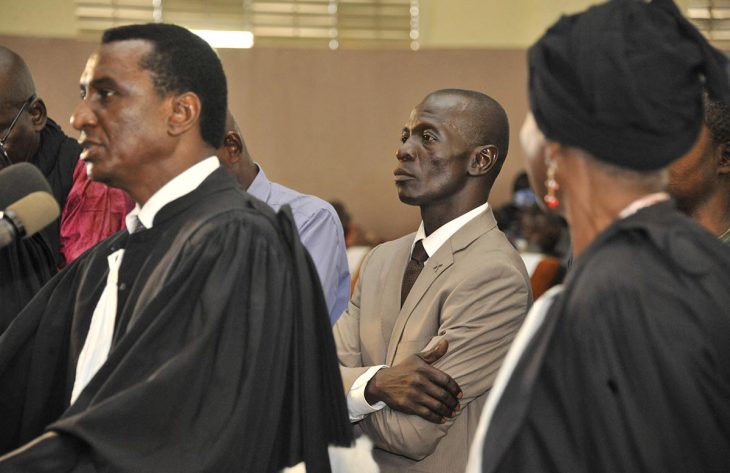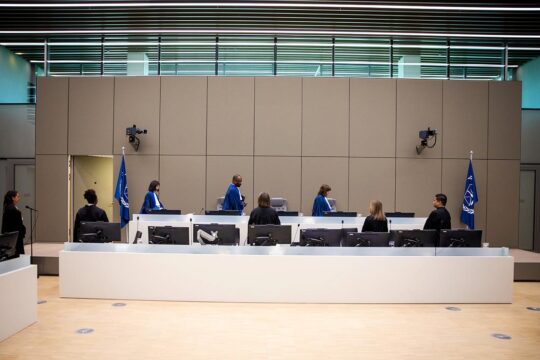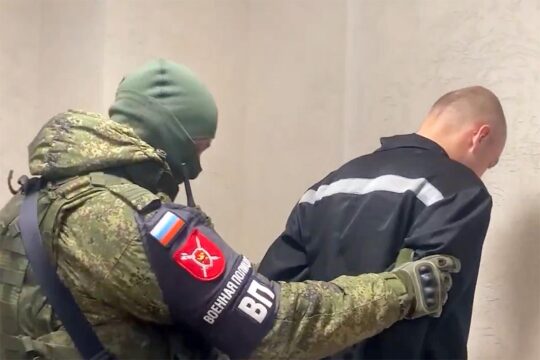The document makes uncomfortable reading for Bamako, firstly because it describes why and how war crimes and crimes against humanity escape prosecution, yesterday, today and probably tomorrow. Also, and perhaps most importantly, the experts of the International Commission of Inquiry on Mali, whose report took seven months to make public, clearly point to the "abuses" committed by the Malian defence and security forces. “The absence of sanctions against perpetrators of serious human rights violations could suggest that the Malian authorities tolerate or even encourage such practices, particularly with regard to violations and crimes committed by the defence and security forces,” the report states.
These accusations embarrass the Malian authorities, who did not wish to comment. Malian government partners are equally cautious. "If it seems to us that the independent report has followed a rigorous methodology, it is above all up to those who wanted this investigation to take ownership of it and express their opinion on its content and recommendations," said in an Email the European Union (EU), which has provided nearly 25 million euros in support to the Malian judicial system since 2015. According to the UN commission, the persistence of impunity in Mali is primarily due to lack of political will to make the fight against impunity for abuses related to the ongoing conflict a priority, despite the existence of a specialized judicial unit whose jurisdiction was extended in 2019 to war crimes and crimes against humanity.
The slowness in processing cases and even inaction of this unit, on which many hopes were pinned, is disappointing. "In Mali, we have a lot of investigations open, but when will they be closed? That's the question," says Drissa Traoré, coordinator of the AMDH-FIDH programme which with Avocats sans frontières Canada and Amnesty International is part of a joint project launched on February 4 in Bamako to "strengthen the fight against impunity in Mali". The coordinator of the AMDH-FIDH programme plans to provide an update in March in the form of a request to the authorities for an explanation on the many cases that are supposed to be "under investigation", particularly killings that occurred in the towns of Ogossagou, Sobane Da, Boulkessi, Dioura, Sokolo, Aguelhok and others.
The new initiative is greeted with suspicion by some members of civil society who see it as just another project. These critical voices, however, do not wish to be quoted. "We very often hear speeches of this kind, that the fight against impunity is a long-term one. We don't pretend we can put an end to it, but that doesn't mean we're going to sit back and do nothing," says Traoré. Since 2012, 181 victims of crimes or serious human rights violations, including more than 100 victims of sexual assault, have been supported by the AMDH-FIDH programme. But results are mixed. With few trials, perpetrators convicted and then released, the result is bitter for human rights activists.
The Sanogo case
Human rights organizations, like the Commission of Inquiry, demand that at the very least some "emblematic" cases be judged, believing they could have a deterrent effect. The trial of Amadou Haya Sanogo, former head of the military junta that led the coup d'état in 2012, should be part of this. Charged with 17 other persons for kidnapping, assassination and complicity in the kidnapping and assassination of 21 soldiers of the parachute commandos, Sanogo’s trial turned into a judicial catastrophe. The families of victims had high expectations of this trial, which opened in 2016 in Sikasso, a city 380 km from the capital. After a few days of hearings, the trial was postponed in to allow for new autopsies on the bodies, the first of which were conducted in "unacceptable situations and conditions", according to Mamadou Ismaila Konaté, then Minister of Justice.
The resumption of the trial had been announced for the first session of the court in 2017, but this did not happen. Three years later, a new date was set for January 13, 2020. But a further postponement was decided, motivated by "major constraints linked to the preservation of public order and cohesion within the armed forces mobilized for the defence of the homeland". According to a member of the former regime, who requested anonymity, "it is a trial with many political implications, and not many politicians want to see it through to the end”. Among Sanogo's co-defendants is Ibrahim Dahirou Dembélé, who was minister of defence. According to former Minister of Justice Konaté, there is nothing to prevent the defendants being brought to court again. That may never happen.
Released on bail on January 28, 2020, Sanogo spends his time between soccer games with friends and working in his field in Kati, some 13 km from Bamako. The former putschist who in 2012 rubbed shoulders with the President of the National Transitional Council, Colonel Malick Diaw, got a front row invitation, after the coup d'état last August, to festivities as part of Mali's 60th independence anniversary. Another investigation, opened against Sanogo and other soldiers for abuses linked to the Kati camp mutiny at the end of September 2013, has come to a standstill. “According to some interlocutors, however, the lack of progress is more a question of the discreet yet proven influence exerted by General Amadou Haya Sanogo and a lack of genuine political will to see the case move forward,” the UN commission wrote.
The Commission followed up on numerous collective complaints filed in the Malian justice system, particularly for sexual and gender-based violence, for crimes committed in 2012 and 2013, mostly by the extremist armed groups active during this period (Ansar Eddine, AQIM, and the MUJAO). Only one resulted in a criminal trial. “Regarding the other complaints,” says the Commission, “either an investigation has been carried out but no proceedings have been instituted to date, or the complaint cannot be traced, or the information available to the Commission suggests that no investigation has been undertaken despite the existence of a civil claim.”
“In most of the documented cases of abuses, violations and crimes, the Commission was unable to determine whether judicial proceedings had been initiated and whether those that had begun were still under way. In most of the cases of documented abuses, violations and crimes, the Commission has not been able to determine whether legal proceedings have been initiated or are ongoing," it added, before drawing up a dizzying list of obstacles to justice in Mali: dangers faced by law officers and judicial personnel; risks faced by victims and witnesses; disorganization of the criminal courts of Mali, which does not spare the Special Judicial Unit; corruption in the Malian judicial system; lack of resources and training; lack of concrete measures to protect victims, witnesses and human rights defenders; difficulties of access to justice; lack of trust in the national justice system among Malians, who prefer customary justice mechanisms that are unsuited; interference with the independence of the justice system; release of prisoners for political purposes; the Amnesty Act of 18 May 2012 and the National Accord Act. The Commission therefore makes the bitter observation that “eight years after the beginning of the crisis and five years after the signing of the Peace and Reconciliation Agreement, impunity for these violations, abuses and crimes related to the conflict remains one of the main challenges to peace and reconciliation in Mali.”
Agreements and prisoner releases
The international community also bears some responsibility for the political interference in Malian justice, the Commission also suggests at several points in its report. “Another political obstacle to justice was the unilateral release of prisoners by the Government without consultation with the judiciary in the context of negotiations with armed groups,” it says. “The Commission’s investigations revealed that the Malian authorities had released, at the request of armed groups and within the framework of ‘confidence-building measures’, more than 150 people who had been formally detained by the Malian justice system.”
An event that occurred after the closing of the report is a perfect illustration of this. In October 2020, 207 detainees and prisoners were released in exchange for the release of a Malian politician and three Western hostages kidnapped by a jihadist group. "The release of these prisoners, some of whom were detained for terrorist acts, others for crimes with no statute of limitations such as war crimes, attacks against the United Nations and international forces, is a blow to efforts to fight impunity," said Guillaume Ngefa, head of the Human Rights Division of the UN Mission in Mali (MINUSMA).
Back in 2014, Alhousseini Houka Houka, former president of the Islamist court of Timbuktu indicted for his alleged role in serious human rights violations, was released by the authorities, in the framework of political negotiations between the Malian government and the Coordination of Movements of Azawad, a rebel alliance created in 2014 in northern Mali. “He then returned to the region of Timbuktu, where he resumed his activities,” the Commission notes in its report. Crimes involving these armed groups and the defence forces may never be prosecuted. This is despite the publication of MINUSMA’s quarterly reports, in which abuses by the defence forces, among other things, are documented. Its Human Rights Division reports that following its "plea", prosecution orders have been signed by the minister of defence, but no prosecutions have yet been initiated. The military justice system has not responded to our requests for information on this.






